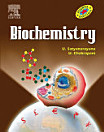Encyclopedia of Cell Biology
Giới thiệu về sách điện tử này
- Fully annotated color images and videos for full comprehension of concepts, with layered content for readers from different levels of experience
- Includes information on cytokinesis, cell biology, cell mechanics, cytoskeleton dynamics, stem cells, prokaryotic cell biology, RNA biology, aging, cell growth, cell Injury, and more
- In-depth linking to Academic Press/Elsevier content and additional links to outside websites and resources for further reading
- A one-stop resource for students, researchers, and teaching faculty across the biological and medical sciences
Xếp hạng và đánh giá
Giới thiệu tác giả
Ralph A. Bradshaw is Professor Emeritus in the Department of Physiology and Biophysics at the University of California, Irvine. Prior to that he was on the faculty of the Department of Biological Chemistry, Washington University, and Professor and Chair of the Department of Biological Chemistry, University of California Irvine. He presently is Professor of Pharmacology at the University of California, San Diego. He served as president of FASEB, was the founding president of the Protein Society and was the treasurer of the ASBMB. He was the founding editor of Molecular and Cellular Proteomics. His research has focused on protein chemistry and proteomics, with emphasis on the structure and function of growth factors and their receptors, particularly nerve growth factor and ?broblast growth factor, and the involvement of receptor tyrosine kinases in cell signaling. He has also studied the role of proteolytic processing and N-terminal modi?cation in protein stability and turnover.
Philip D. Stahl is Professor Emeritus at Washington University School of Medicine in St. Louis. He was educated at West Virginia University and Vanderbilt University. He served as Head of the Department of Cell Biology and Physiology and Director of the Division of Biology and Biomedical Sciences at Washington University. He has been the recipient of many awards including a MERIT award from the NIH and the WICB Senior Recognition award given by the American Society for Cell Biology in recognition of his work supporting the advancement of women in science. Among Stahl Lab contributions are the discovery of the lysosomal enzyme clearance pathway now implemented in the treatment of lysosomal storage disease, discovery of the innate immune receptor, the mannose receptor, discovery of the exosome secretion pathway, and the role of Rab5 and Arf6 in endocytosis. Currently his research focuses on endocytosis, signal transduction, and exosome biogenesis and secretion.






